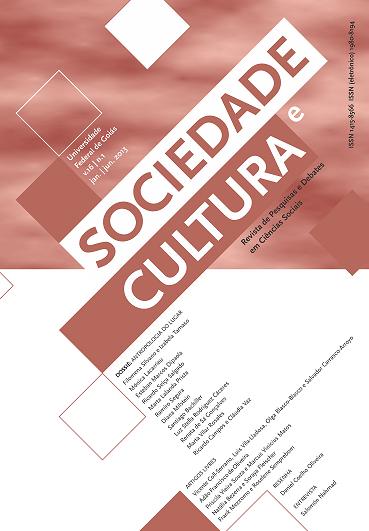Los sentidos del lugar. Temporalidades, relaciones sociales y memorias en un barrio segregado de La Plata (Argentina)
DOI:
https://doi.org/10.5216/sec.v16i1.28209Keywords:
lugar, habitar, temporalidades, relaciones, memoriaAbstract
A partir del trabajo etnográfico en “Puente de Fierro”, barrio segregado y estigmatizado de la periferia de la ciudad de La Plata (Argentina), el presente artículo analiza el proceso de atribución de sentidos por medio del cual un “espacio” deviene “lugar”. Se detiene en dos aspectos fundamentales para comprender los sentidos del lugar. Por un lado, describe el habitar como proceso social, espacial y temporal de construcción de vínculos con el espacio y con otros actores sociales. Por el otro, analiza dos proyectos contemporáneos (uno sobre la “memoria”, otro sobre el “patrimonio”) que buscan revertir los sentidos dominantes sobre el lugar. El “lugar” consiste en un espacio de entrecruzamientos, diálogos y conflictos entre diversos actores a lo largo del tiempo,así como condición, objeto y producto de estas relaciones. Se trata de un proceso abierto e inacabado, con sentidos cambiantes, alternativos o en disputa.Downloads
Download data is not yet available.
Downloads
Published
2014-02-06
How to Cite
SEGURA, Ramiro. Los sentidos del lugar. Temporalidades, relaciones sociales y memorias en un barrio segregado de La Plata (Argentina). Sociedade e Cultura, Goiânia, v. 16, n. 1, p. 10.5216/sec.v16i1.28209, 2014. DOI: 10.5216/sec.v16i1.28209. Disponível em: https://revistas.ufg.br/fcs/article/view/28209. Acesso em: 28 feb. 2026.
Issue
Section
Thematic Dossier
License
Authors who publish in this journal agree to the following terms:
- Authors retain the copyright and grant the journal the right of first publication, the work being simultaneously licensed under the Creative Commons Attribution License, which allows the sharing of the work with acknowledgment of authorship and of the initial publication in this journal;
- Authors are authorized to enter into additional contracts separately, for non-exclusive distribution of the version of the work published in this journal (eg, publishing in an institutional repository or as a book chapter), with acknowledgment of authorship and of the initial publication in this journal;
- Authors are allowed and encouraged to post and distribute their work online (eg, in institutional repositories or on their personal page) at any point before or during the editorial process, as this can bring productive change as well as increases the impact and the citation of the published work (see O Efeito do Acesso Livre).



